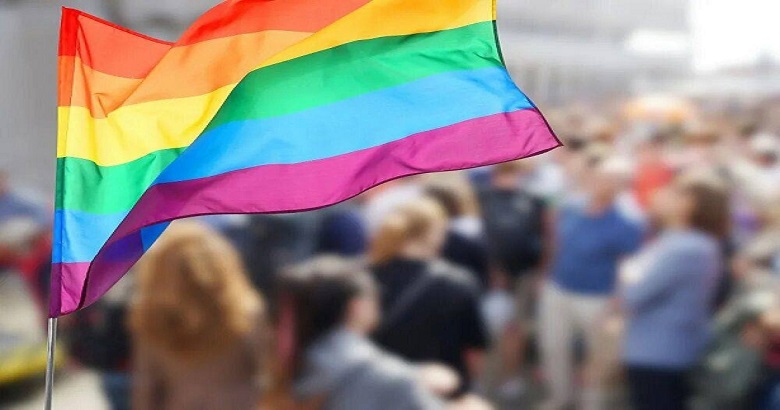
Personal freedom is a cornerstone of human dignity, enabling individuals to make decisions about their lives without interference. It encompasses a wide range of civil liberties, including freedom of speech, freedom of expression, and freedom of choice. In the context of LGBTQ+ rights, personal freedom is a crucial concept, as it relates to the ability of individuals to live their lives authentically and without fear of discrimination or repression. Over the decades, LGBTQ+ rights have been at the forefront of many legal and cultural battles, with personal freedom playing a pivotal role in these discussions.
This blog will explore the relationship between personal freedom and LGBTQ+ rights, examining the historical and contemporary struggles for equality, the impact of societal attitudes and legal structures, and how personal freedom empowers the LGBTQ+ community.
What Does Personal Freedom Mean?
Before determining LGBTQ+ rights, it’s essential to define what personal freedom means. Personal freedom can be understood as the ability of individuals to make choices that affect their own lives without being constrained by government, societal norms, or other external pressures. In democratic societies, personal freedom is typically protected by laws and constitutions, ensuring that individuals can exercise their rights freely as long as their actions do not harm others.
A Brief History of LGBTQ+ Rights
The LGBTQ+ rights movement has a rich and complex history, marked by both progress and setbacks. For much of history, LGBTQ+ individuals have faced severe discrimination and criminalization, with societal norms and legal systems denying them the personal freedom to live authentically.
Early Legal and Cultural Repression
Throughout history, same-sex relationships and non-cisgender identities were often considered taboo, sinful, or even criminal. Many ancient societies, such as the Greeks and Romans, had more fluid conceptions of sexuality, but by the time of the Middle Ages, religious doctrines in Europe and other parts of the world had solidified anti-LGBTQ+ attitudes. Laws against homosexuality became widespread, and non-conforming individuals faced severe punishments, including imprisonment, execution, or forced conversion therapy.
The Rise of the LGBTQ+ Rights Movement
The modern LGBTQ+ rights movement began in the late 19th and early 20th centuries, as individuals began to advocate for the decriminalization of homosexuality and the acceptance of non-heteronormative identities. Early pioneers, such as Magnus Hirschfeld in Germany, sought to challenge societal norms and promote a greater understanding of sexual diversity.
In the United States, the LGBTQ+ movement gained significant momentum in the mid-20th century, particularly with the rise of the civil rights movement. The Stonewall Riots of 1969, a series of spontaneous demonstrations by members of the LGBTQ+ community in response to police raids on the Stonewall Inn in New York City, are widely regarded as the catalyst for the modern LGBTQ+ rights movement. This event galvanized LGBTQ+ activists and led to the formation of many organizations dedicated to advocating for equal rights.
Legal Victories and Ongoing Struggles
Over the past few decades, there have been significant legal victories for LGBTQ+ individuals in many parts of the world. These victories have often been framed as matters of personal freedom, with courts recognizing the right of LGBTQ+ individuals to live their lives without interference from the government.
One of the most significant legal victories in recent history was the legalization of same-sex marriage in various countries, including the United States, where the Supreme Court ruled in Obergefell v. Hodges (2015) that same-sex couples have a constitutional right to marry. This decision was a landmark moment for personal freedom, as it affirmed the right of individuals to make deeply personal decisions about their relationships without interference from the state.
Personal Freedom and LGBTQ+ Rights
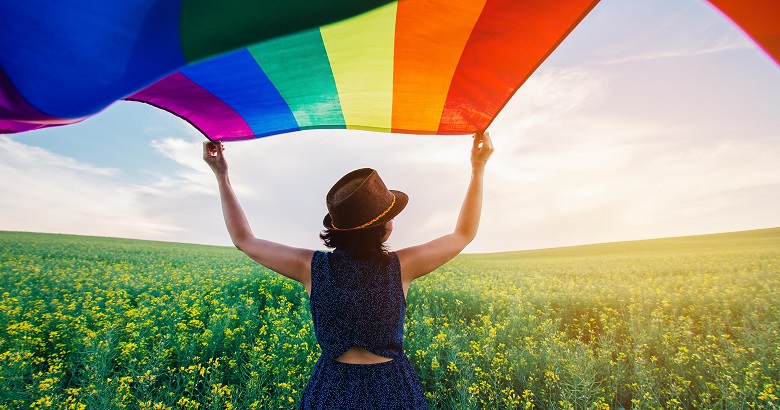
The relationship between personal freedom and LGBTQ+ rights is multifaceted, with personal freedom serving as both a goal of the LGBTQ+ rights movement and a framework through which legal and cultural battles are fought.
Freedom of Expression and Identity
One of the most fundamental aspects of personal freedom is the right to express oneself openly and authentically. For LGBTQ+ individuals, this often means being able to express their gender identity or sexual orientation without fear of retribution.
The freedom to express one’s identity is crucial for mental health and well-being. Many LGBTQ+ individuals who are forced to hide their identities or conform to societal expectations experience higher rates of depression, anxiety, and other mental health challenges. Conversely, those who are able to live openly and authentically often experience greater life satisfaction and well-being.
Freedom of Choice in Relationships
Another key aspect of personal freedom is the ability to choose whom to love and form relationships without interference from the state or society. For LGBTQ+ individuals, this has historically been one of the most contentious issues, as many legal systems have sought to regulate or restrict same-sex relationships.
The legalization of same-sex marriage in many countries represents a significant victory for personal freedom, as it recognizes the right of individuals to make personal decisions about their relationships. This is not just about legal recognition but also about societal acceptance and the affirmation of LGBTQ+ individuals’ right to live as equals.
Freedom from Discrimination
Personal freedom also encompasses the right to live without fear of discrimination. LGBTQ+ individuals have historically faced, and continue to face, discrimination in many areas of life, including employment, housing, healthcare, and education.
Anti-discrimination laws are a critical tool for protecting personal freedom, as they ensure that LGBTQ+ individuals can access the same opportunities and services as their heterosexual and cisgender counterparts. In many countries, significant progress has been made in enacting such laws, with legal protections now in place to prevent discrimination based on sexual orientation or gender identity.
The Role of Societal Attitudes
While legal protections are essential for ensuring personal freedom, societal attitudes also play a crucial role in shaping the lived experiences of LGBTQ+ individuals. Even in countries where LGBTQ+ rights are protected by law, societal stigma and discrimination can limit personal freedom.
Cultural Norms and Expectations
Cultural norms and expectations often serve as informal restrictions on personal freedom, particularly when it comes to gender and sexuality. LGBTQ+ individuals may feel pressure to conform to traditional gender roles or hide their identities to avoid social ostracism or discrimination.
In many cultures, LGBTQ+ individuals face significant stigma, with societal attitudes shaped by religious beliefs, historical prejudices, or misinformation. This stigma can lead to violence, harassment, and exclusion from family, community, or public life. For many LGBTQ+ individuals, the fear of social rejection or violence limits their ability to live authentically and exercise personal freedom.
Media Representation and Visibility
One of the ways in which societal attitudes can be changed is through positive representation and visibility in the media. Over the past few decades, LGBTQ+ representation in film, television, and other media has increased significantly, helping to challenge stereotypes and promote a greater understanding of LGBTQ+ identities.
Visibility is a powerful tool for advancing personal freedom, as it allows LGBTQ+ individuals to see themselves reflected in the world around them. When LGBTQ+ individuals are portrayed positively in the media, it helps to normalize diverse identities and challenge societal norms that may restrict personal freedom.
The Intersection of LGBTQ+ Rights and Other Forms of Oppression
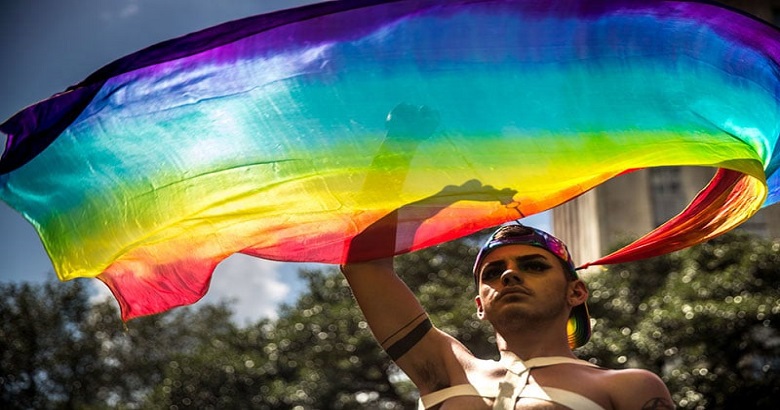
While personal freedom is a central concept in the fight for LGBTQ+ rights, it is important to recognize that LGBTQ+ individuals are not a monolithic group. The experiences of LGBTQ+ individuals are shaped by various intersecting identities, including race, class, disability, and immigration status.
Racial and Economic Disparities
LGBTQ+ people of color, particularly Black and Latinx individuals, often face compounded forms of discrimination that limit their personal freedom. In addition to facing discrimination based on their sexual orientation or gender identity, they may also experience racism, economic inequality, and barriers to healthcare or education. These intersecting forms of oppression create unique challenges for LGBTQ+ people of color, who may find that their personal freedom is restricted in multiple ways.
For example, Black transgender women face some of the highest rates of violence and discrimination in the LGBTQ+ community. They are more likely to be targeted for hate crimes, face barriers to employment, and experience homelessness. These systemic issues highlight the need for an intersectional approach to LGBTQ+ rights, one that recognizes the importance of addressing other forms of oppression in order to fully realize personal freedom for all LGBTQ+ individuals.
Disability and LGBTQ+ Rights
LGBTQ+ individuals with disabilities also face unique challenges when it comes to personal freedom. They may experience discrimination based on both their sexual orientation or gender identity and their disability, leading to barriers in accessing healthcare, education, and employment. Moreover, societal attitudes toward disability can sometimes infantilize or desexualize individuals with disabilities, limiting their ability to express their identities freely.
Global Perspectives on LGBTQ+ Rights and Personal Freedom
While much of the discussion around LGBTQ+ rights and personal freedom has focused on countries where significant progress has been made, it is important to consider the global context. In many parts of the world, LGBTQ+ individuals continue to face severe repression, with personal freedom virtually nonexistent.
Criminalization and Persecution
In more than 60 countries, same-sex relationships are still criminalized, and LGBTQ+ individuals face legal penalties, including imprisonment, corporal punishment, or even death. In these regions, LGBTQ+ individuals are often forced to live in secrecy, as coming out or expressing their identity openly can lead to violence, arrest, or execution.
The criminalization of LGBTQ+ identities is a direct assault on personal freedom, as it denies individuals the right to make fundamental decisions about their lives, such as whom to love or how to express their gender. In such contexts, the fight for LGBTQ+ rights is often a matter of survival, with activists risking their lives to challenge oppressive laws and social norms.
The Role of International Advocacy
International support can bolster local efforts, but it must be done with care to avoid imposing external values that may be seen as culturally inappropriate or imperialistic. By supporting grassroots LGBTQ+ organizations and activists, the international community can help create safer environments for LGBTQ+ individuals to exercise their personal freedom. It’s also important for international bodies like the United Nations and non-governmental organizations (NGOs) to call out human rights abuses against LGBTQ+ individuals and push for global standards that protect personal freedom, regardless of gender or sexual orientation.
The Impact of Globalization and Social Media
Globalization and the rise of social media have played transformative roles in shaping the global LGBTQ+ movement and expanding personal freedoms. Social media platforms like Twitter, Instagram, and Facebook have enabled LGBTQ+ individuals to share their stories, organize protests, and build communities, even in countries where LGBTQ+ identities are criminalized. These platforms have given a voice to marginalized groups and have allowed LGBTQ+ activists from different parts of the world to connect, share strategies, and raise awareness of the struggles they face.
For example, movements such as #LoveIsLove and #TransRightsAreHumanRights have gained global attention, sparking solidarity and activism across borders. In many cases, the visibility of LGBTQ+ issues on social media has led to tangible policy changes, increased social acceptance, and greater personal freedom for LGBTQ+ individuals worldwide.
The Role of Governments in Securing LGBTQ+ Rights and Personal Freedom
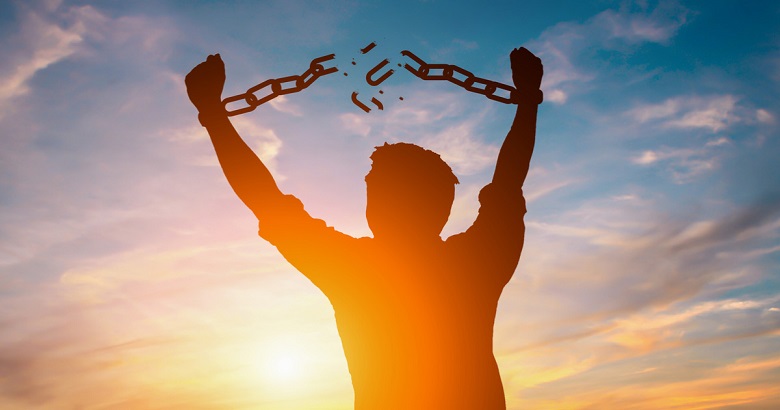
While personal freedom is an inherent human right, it must often be secured and protected by governments through legislation and policy. The role of governments in the fight for LGBTQ+ rights is twofold: first, they must dismantle laws and policies that restrict personal freedom; second, they must actively promote and protect the rights of LGBTQ+ individuals through anti-discrimination laws, marriage equality, healthcare access, and other measures.
Dismantling Discriminatory Laws
In many countries, LGBTQ+ individuals still face legal obstacles that restrict their personal freedom. These obstacles can include laws criminalizing same-sex relationships, restrictions on gender-affirming healthcare, bans on LGBTQ+ organizations, and the lack of recognition of gender identity in legal documents. Governments that wish to protect personal freedom must prioritize the repeal of such laws and replace them with inclusive policies that respect the rights of all individuals, regardless of sexual orientation or gender identity.
Promoting Anti-Discrimination Legislation
Anti-discrimination legislation is essential for ensuring that LGBTQ+ individuals have the personal freedom to live their lives without fear of prejudice in key areas such as employment, housing, healthcare, and education. For example, the United States saw significant progress with the Bostock v. Clayton County decision in 2020, in which the Supreme Court ruled that Title VII of the Civil Rights Act of 1964 protects employees against discrimination based on sexual orientation or gender identity. This legal protection significantly expands personal freedom for LGBTQ+ individuals by ensuring they cannot be fired or discriminated against at work simply because of their identity.
Governments should also extend anti-discrimination protections to healthcare and education settings. LGBTQ+ individuals often face significant barriers to accessing healthcare, particularly gender-affirming care for transgender individuals. By ensuring that healthcare providers cannot deny care based on sexual orientation or gender identity, governments can protect personal freedom in one of the most fundamental areas of life: health and well-being.
Marriage Equality and Family Rights
The right to marry and form a family is a crucial component of personal freedom. The legalization of same-sex marriage in many countries has been one of the most visible victories for LGBTQ+ rights, affirming the right of individuals to choose their partners and have their relationships recognized by the state. In addition to marriage equality, governments must also address other family-related issues, such as adoption rights and parental recognition for same-sex couples.
Gender Recognition and Healthcare
For transgender and non-binary individuals, legal recognition of their gender identity is essential for personal freedom. Many countries still require transgender individuals to undergo invasive medical procedures, such as sterilization, before they can change their legal gender, while others refuse to recognize non-binary identities altogether. Such policies violate the personal freedom of transgender individuals by forcing them to conform to rigid definitions of gender and deny their right to self-identify.
The Importance of Intersectionality in LGBTQ+ Rights
While personal freedom is a universal concept, the way in which it is experienced by LGBTQ+ individuals varies significantly depending on their intersecting identities. As discussed earlier, LGBTQ+ individuals are not a homogenous group, and the challenges they face are often shaped by other factors, such as race, ethnicity, class, disability, and immigration status. The concept of intersectionality—coined by scholar Kimberlé Crenshaw—recognizes that people can face multiple, overlapping forms of discrimination that affect their personal freedom in unique ways.
Race and LGBTQ+ Rights
For LGBTQ+ people of color, personal freedom can be limited not only by their sexual orientation or gender identity but also by systemic racism. LGBTQ+ individuals who are also part of racial or ethnic minorities may face additional barriers to accessing healthcare, education, and employment, and they may be more likely to experience police brutality or other forms of state violence.
For example, Black transgender women in the United States face disproportionately high rates of violence, often as a result of both racism and transphobia. This intersectional discrimination limits their personal freedom in profound ways, making it difficult for them to live safely and authentically. Addressing the intersection of race and LGBTQ+ rights is crucial for ensuring that all LGBTQ+ individuals, regardless of their racial or ethnic background, can enjoy personal freedom.
Class and Economic Inequality
Economic inequality is another important factor that affects personal freedom in the LGBTQ+ community. LGBTQ+ individuals, particularly transgender individuals, are more likely to experience poverty, homelessness, and unemployment compared to their heterosexual and cisgender peers. The lack of economic security can severely restrict personal freedom, making it difficult for LGBTQ+ individuals to access basic needs such as housing, healthcare, and education.
Disability and LGBTQ+ Rights
LGBTQ+ individuals with disabilities face unique challenges when it comes to personal freedom. In addition to navigating ableism, they may also encounter discrimination based on their sexual orientation or gender identity. For example, LGBTQ+ individuals with disabilities may face barriers to accessing LGBTQ+ spaces that are not physically accessible, or they may be excluded from discussions about LGBTQ+ rights that fail to consider the needs of people with disabilities.
Wrapping Up
Personal freedom is at the heart of the fight for LGBTQ+ rights. The ability to live authentically, express one’s identity, and make fundamental decisions about one’s life without fear of discrimination or violence is a basic human right that must be protected for all individuals, regardless of sexual orientation or gender identity. While progress has been made, significant challenges remain, particularly in countries where LGBTQ+ individuals face criminalization, persecution, and violence.
The fight for personal freedom is not just about legal reforms but also about changing societal attitudes, challenging systemic inequalities, and ensuring that all members of the LGBTQ+ community—particularly those who face intersecting forms of discrimination—are able to enjoy their full rights. Governments, advocacy organizations, and international bodies all have a role to play in advancing LGBTQ+ rights and ensuring that personal freedom is a reality for everyone.
Frequently Asked Questions
1. How does personal freedom intersect with LGBTQ+ rights globally?
Personal freedom intersects with LGBTQ+ rights by empowering individuals to express their sexual orientation and gender identity without fear of discrimination, but many countries criminalize LGBTQ+ identities, limiting this freedom.
2. How does the lack of legal recognition for transgender individuals restrict personal freedom?
Without legal recognition of their gender identity, transgender individuals are often forced to conform to outdated definitions of gender, which restricts their autonomy and ability to live authentically.
3. How does economic inequality impact personal freedom within the LGBTQ+ community?
Economic disparities, like higher rates of poverty and unemployment, limit personal freedom by preventing access to basic needs, such as housing, healthcare, and education, especially for transgender and non-binary individuals.
4. What role does intersectionality play in understanding personal freedom for LGBTQ+ individuals?
Intersectionality highlights how factors like race, class, and disability compound discrimination against LGBTQ+ individuals, restricting personal freedom differently for various subgroups within the community.
5. How do governments influence the personal freedom of LGBTQ+ individuals?
Governments can either restrict or promote LGBTQ+ personal freedom through laws. Repealing discriminatory legislation and enacting inclusive policies can expand freedoms, while criminalization imposes severe limitations.
